XV. UEU, an event that will not be forgotten
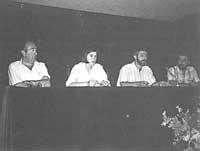
Andoni Sagarna, director of our association, gave an interesting introductory talk on terminological banks. After mentioning the differences between general and technical terminology, the need and structure of terminological banks were discussed.
Interdisciplinary enriching topics
The UEU is a meeting place where people travelling through different university centres have the opportunity to see and exchange ideas. That is why the EU places a special emphasis on interdisciplinary issues. This year the book "Philosophia naturalis principia matematica", published by Newton 300 years ago. Physicists, mathematicians and philosophers analyse Newton and his contributions to science. Through six lectures and a round table, Newton's science and influence were discussed. These were the presentations: "Some Points of Newton's Scientific Revolution: Ontology and Inconmentality" A. Mtz Lizardui; "Newton's anti-mechanistic thinking: science and theory" A. Ibarra;" Newton and calculation " J. Duoandikoetxea; " Newton and mechanics " A. Duoandikoetxea; " Newton and optics " J. R. Etxebarria and "Newton in the realm of alchemy" I. Irazabalbeitia.
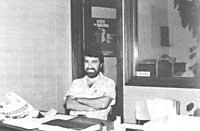
In addition, the round table "Newton's Science and Philosophy" was especially enriching and the debate extended for three hours. Andoni Ibarra considers that the method used by Newton is axiomatic. In the introduction of the book Principia establishes axioms that Newton uses to justify their consequences. Joxerra Etxebarria disagreed with this and Ibarra says he has come to that conclusion by analyzing a book. He says that he also partly uses the axiomatic method in Principi, but if other books like "Optics" are analyzed, it is seen that he uses the experimental method. After this introduction the possibility of speaking to the attendees was opened.
Mathematics
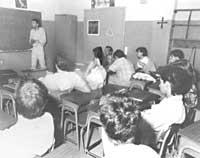
Mathematicians grouped in the EU are not many, but it cannot be denied that they affect topics of interest. Arantxa Urkaregi, Deputy Minister, has analyzed the core of data analysis. Data analysis is a part of multidimensional statistics and its techniques are simple, as they are based on linear algebra. Data analysis, for its part, has a very broad field of application: socioeconomics, demography, agriculture, sociology...
Jabi Duoandikoetxea studied crystals and quasicrystals. His words are:" The materials that appear in nature can be of two types: amorphous and crystalline. The most remarkable feature of the latter is the existence of high symmetry properties, while the former lack them and when studying with x-rays give a stain. Analyzing the unalterability by translation, rotation and reflection can be observed the possible types of crystals: crystallographic groups.
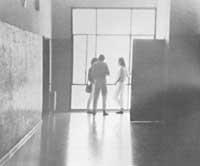
Recently, some materials synthesized in the laboratory showed a pentagonal symmetry using x-rays. It is known that this symmetry is impossible in crystals. Therefore, crystals could not be. However, the material is not totally amorphous and that is why it has been called quasi-crystal. The mathematical model of quasicrystals is Penrose's facet."
Physics
As every year in Physics many things have been done and among all there is something to mention J.F. Course taught by Tobar Arbulu under the title " Quantum Mirari " and F. We will quote the interesting conference "Physics and armory" of Plazaola. Plazaola exposed the role of physicists in the development of weapons. On the other hand, he stressed that this fact not only occurs abroad, but is also happening among us and as an example he pointed out about the arms factories of Euskal Herria: " Formerly shotguns were made, now missiles "
Natural sciences
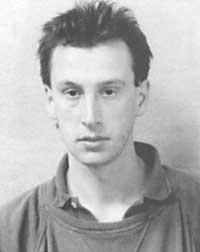
In the annual work of Nature Sciences something happens in the form of a cycle. In some years they are linked to the study of monographic subjects and in others they are treated more dispersed topics. The latter has been the case. Among the topics that have touched us stand out two: Tour towards Done and practices with bees.
Counselor Koldo Nuñez tells us: "This year we have gone to Hecho. Throughout the week we have theoretically prepared the tour and have gone the weekend. The valley of Hecho is very interesting from the geological point of view and to it geologists from all over the world gather to study the stones, the seismoturbinites. The stones present in Hechon appeared in the Mesozoic. At that time the alpine orogeny began and much of the existing marine platform collapsed with the first earthquakes, giving rise to large and spectacular types of rocks.
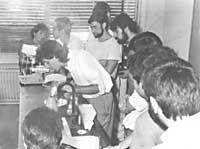
We have also done practices with bees. People have studied in groups the hives provided by Martxel Aizpurua"
Computer science
The central theme that computer scientists have analyzed this year has been that of teaching and the resources that computer science offers to teaching have been explained to EGB teachers.
Other topics covered have been "Fundamentals of microprogramming", "Machine translation" (A general description of computer-assisted translation has been made), "Morphological analyzer in Basque" (Program implemented with the LISP language most used in artificial intelligence that offers all possible morphological analyses for each word of a phrase), "Another way to program the PROLOG" and "The algorithm written in Basque."
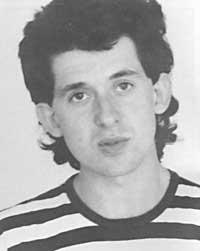
This is from the scientific point of view. Fruit of the EU. However, this EU event has an important negative point: the failure of the chemistry section. Long ago, this section that in its day was very well weakened and this year, faced with an apparently attractive and interesting program, the students have failed. Consequently, there has been no chemistry this year. The causes of this unfortunate event should be analyzed in a serene and profound way, and in the coming years we should see how to regroup chemicals in the EU.
The one in Pamplona has ended, at the end of November the conferences of Donostia will be held and meanwhile in Baiona the act of the north is celebrated. The EU has to do before the end of the year!
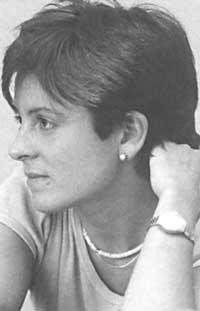
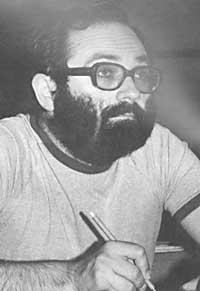
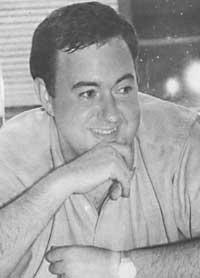
Mathematician from ParisEnrike Zuazua has read his doctoral thesis within the UEU. With the excuse of it we go to him to conduct this interview. Elhuyar- Hitz lauz, what is your thesis? Enrike Zuazua- The qualitative properties of equation solutions in evulative partial derivatives have been analyzed. Among the equations considered we have seen the wave equation and the vibratory plate models. The main topics covered were three: Infinite behavior of resolutions, resolution oscillation properties and exact controllability of resolutions. V- Would you define it as a theoretical or practical thesis? R. Z.- The topics covered in this thesis are somehow crushed mathematicians. This thesis was developed in the "Laboratoire d'Analyse Numèrique", an applied laboratory. However, he has one leg on one side and the other on the other. It is situated between mathematics and theoretical, fully numerical or computer mathematics. The equations we elaborate come from physics and precisely in my thesis we analyze the models of vibrating plates. However, we do a totally theoretical examination. V- So far you have been in Paris, what do you have to do from today? R. B.- My intention is to return at least to the University of the Basque Country. V- Will you come to Paris to do your job? R. C.- I can also work in Bilbao. You're always on the tip of Paris and you know what people are doing at every moment. The risk you run in Bilbao is: Three years after he came from Paris, what he was learning was still studying, losing fashion problems. That is why I think it is necessary that from the mathematical point of view they relate to the universities of Madrid and Paris powerful in our environment, that they bring people from there and that of here go there. Going into that dynamic, I don't think there are big problems being in Bilbao. |





